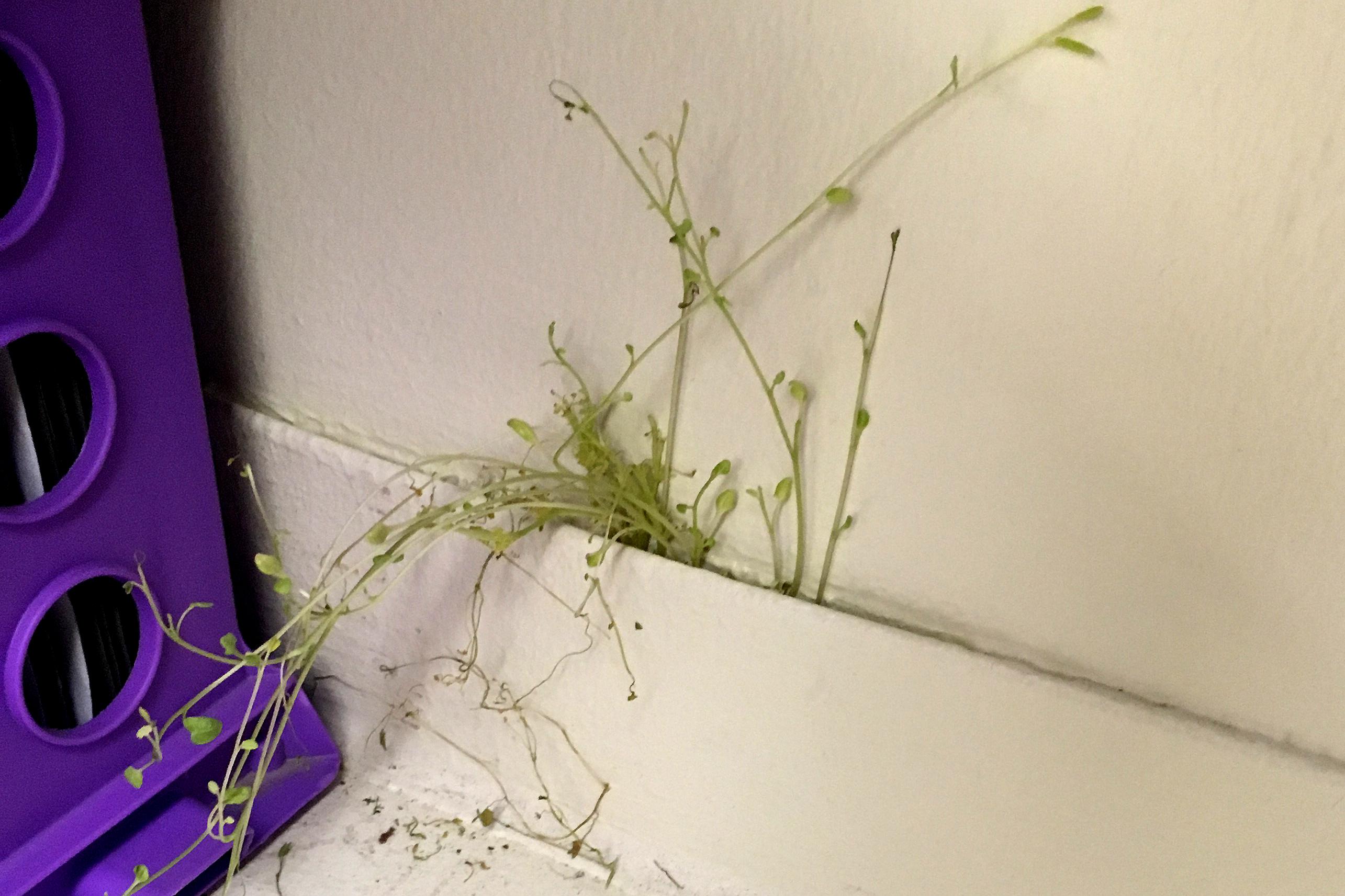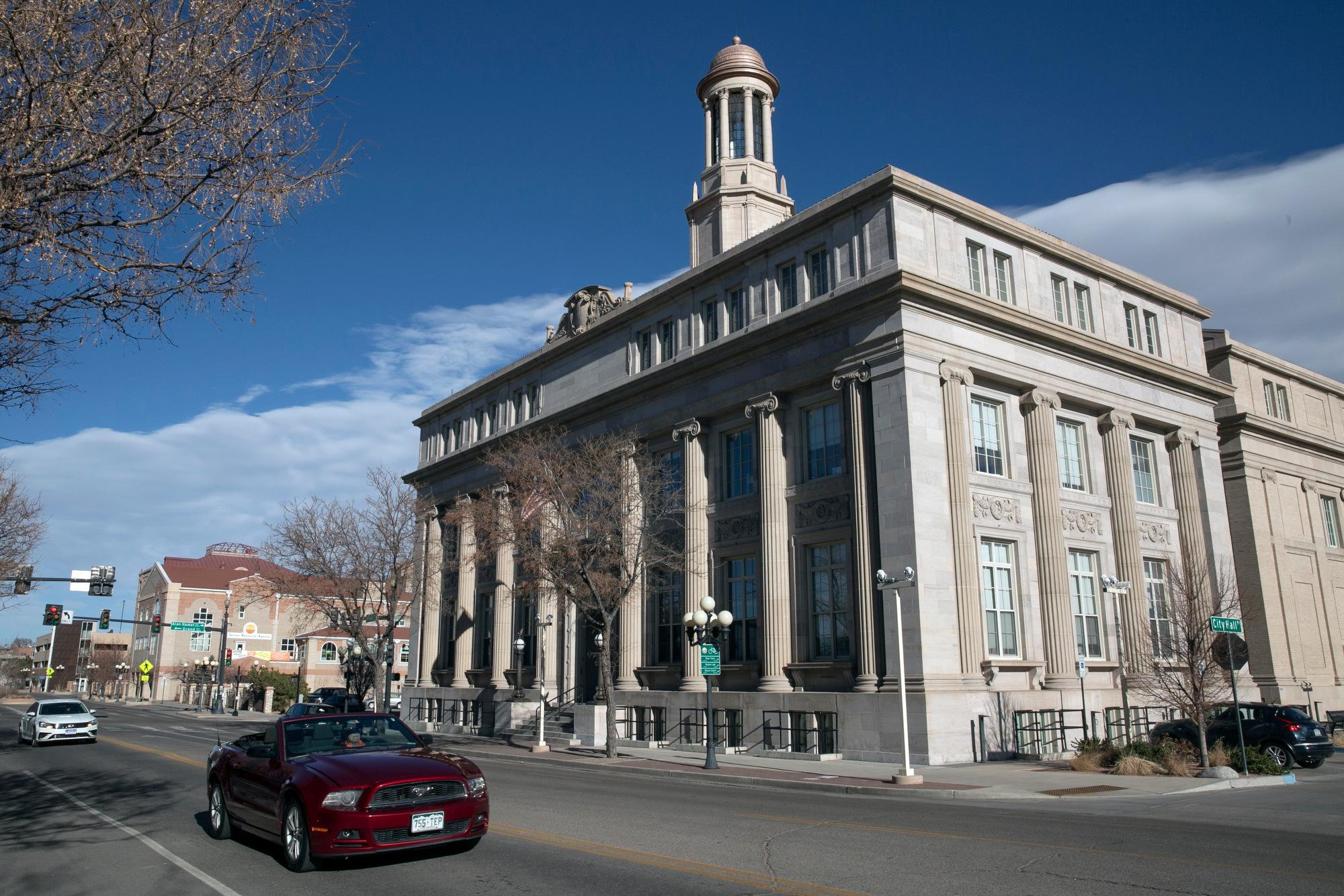

When asked about what a proposed property tax increase will pay for in the Grand Junction's Mesa County School District 51, advocates and teachers point to a plant growing out of a wall at Orchard Mesa Middle School.
Dubbed “Bartholomew” by the students, the plant pokes sideways through an old heating vent and gets watered by way of a leaking roof. Once in awhile, maintenance crews chop it down, or one of the teachers puts a crate of books over it. But Bartholomew always grows back.
“The students make light of the situation and I think it’s really sweet that the kids can find some levity,” said Kelly Flenniken, head of Citizens for School District 51, a group organized to support the proposal. “But I don’t think it’s funny that we have middle school kids learning at the environment.”

If passed, it will be the first financial boost for the public schools here since 2004. The proposed money will pay for additional student days per year, a new middle school, new HVAC systems and new textbooks.
Flenniken points out the district’s latest textbooks say that Bill Clinton is president.
“Several things, obviously, have happened since President Clinton,” she said. “I think it should just be up to teachers to supplement all of that information.”
The campaign’s list of supporters — who have been canvassing the town and holding neighborhood meetings about the dire conditions in the school buildings — includes the local teachers union, the city council, the university president, the mayor, the chamber of commerce and several business owners.
“From a college perspective, you can always go down the road of money doesn’t make a good education and cite all kinds of examples,” said Colorado Mesa University President Tim Foster. “But at the end of the day, money is the fuel for any enterprise so it’s very difficult and challenging for a school district do not have funds to make things happen.”
Foster has set aside money in his budget to fund counselors at Grand Junction’s four high schools so students can get pre-college help.

Despite the broad support among mixed political bedfellows, it’s still a tall order to get tax increases passed in this conservative town. Advocates last went to voters in 2010 for more money for schools and it failed. Voters have not approved a sales tax increase here since 1989.
“Over the years, there has been a question, has money that has come from previous mill levies, has it been invested properly?” said Grand Junction Mayor Rick Taggart. “To me that’s a hollow argument. It’s an argument that is holding us back.”
Taggart points out that Grand Junction kids are in school around 160 days a year compared to the Front Range — whose districts have between 170 to 180 days a year. In Taggart’s native New York, there is an additional 30 extra days of instruction per year, he said.
“That’s frightening to me,” he said. “They have to compete.”
But Grand Junction resident and former educator Phyllis Hunsinger said it’s all about outcomes. Hunsinger has been an outspoken opponent of the tax proposals. She said the school district can’t be trusted with more money because the administration is bloated.
“I think the support should be at the teacher level and that’s what makes a difference,” Hunsinger said. “We are always told that this is an investment in education. If that’s the case, what is the return to the taxpayers? Will the students become more efficient in math and English? Will students have a better understanding of math and economics? … Those are the things that a taxpayer expects from an investment in education.”
The school district’s per pupil funding, at $7,500, is among the state’s lowest, ranked 171 of 178 districts. Beyond the decrepit middle school, teachers talk about rodent infestations, old HVAC systems that hang so low that taller students’ heads bump into them, and a half a million square feet of asbestos. The average age of a school is 44 years.
“You can’t run multiple pieces of technology at the same time or you’ll blow a fuse,” said Tanya Smith, a middle school teacher. “Our building is full of exposed wires and overrun with breakers. I’d like to teach them skills for the future and we’re not even in today.”
Cheri Vana, principal of the middle school with Bartholomew, said she has been worried about reaching all of the voters who don’t interact with the school district every day.
“I worry about it,” Vana said. “But I really feel like our community is starting to understand the need and putting a lot more emphasis on the priority of a very sound high level education system.”









